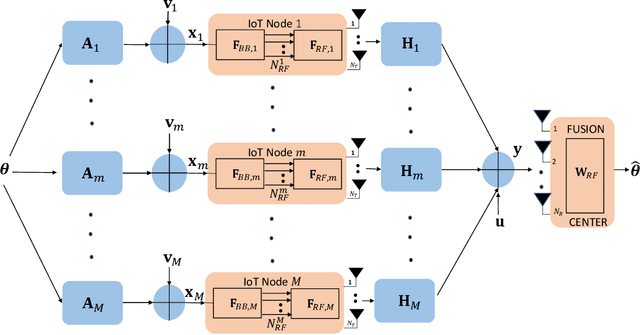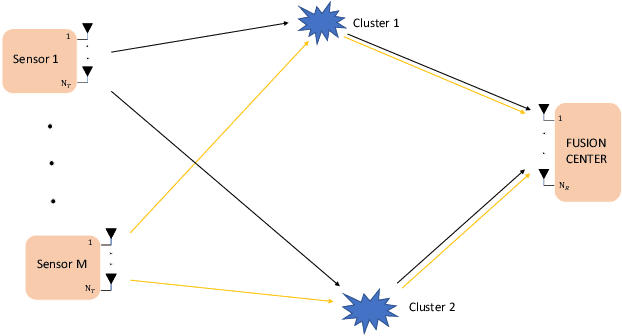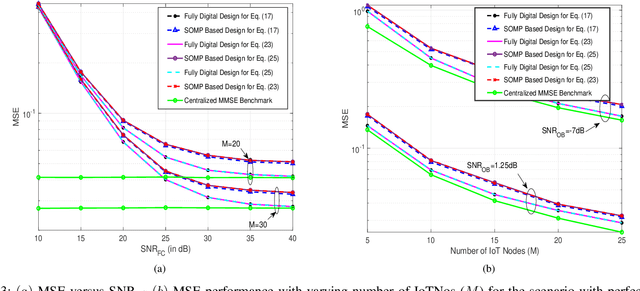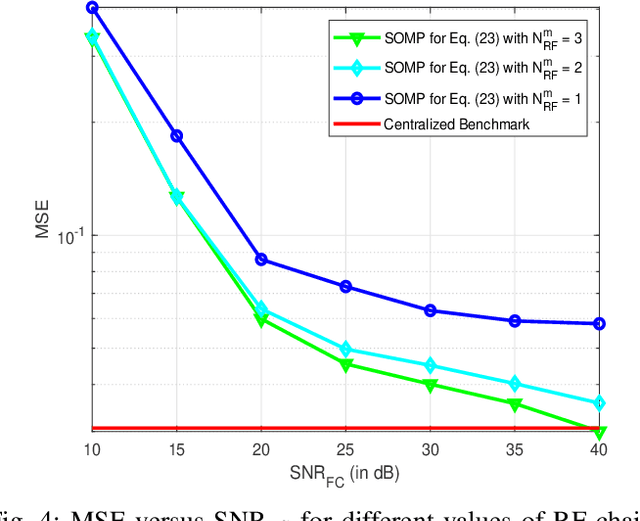Priyanka Maity
Sparse OFDM Design for Interference and Ambiguity Mitigation in Multi-Static ISAC
Dec 16, 2025



Abstract:The sixth-generation (6G) wireless networks promises the integration of radar-like sensing capabilities into communication infrastructure. In this paper, we investigate a multi-static sensing framework where half-duplex base stations (BSs) are assigned as either transmitter or sensing receiver nodes. We propose a randomized sparse resource allocation scheme based on orthogonal frequency division multiplexing (OFDM) waveform design tailored for the multi-static scenario to simultaneously mitigate inter-BS interference (IBI) and sensing ambiguities. The waveform design also ensures robustness against inter-symbol interference (ISI) and intercarrier interference (ICI) via a judicious choice of subcarrier spacing according to the deployment of BSs. The potential ambiguity caused by sparse signaling is addressed through controlled irregularity in both time and frequency domains, with a negligible noise floor elevation. Simulation results demonstrate the effectiveness and resilience of the proposed design in the presence of multiple targets and clutter.
Joint Angle and Velocity-Estimation for Target Localization in Bistatic mmWave MIMO Radar in the Presence of Clutter
Jun 13, 2025Abstract:Sparse Bayesian learning (SBL)-aided target localization is conceived for a bistatic mmWave MIMO radar system in the presence of unknown clutter, followed by the development of an angle-Doppler (AD)-domain representation of the target-plus-clutter echo model for accurate target parameter estimation. The proposed algorithm exploits the three-dimensional (3D) sparsity arising in the AD domain of the scattering scene and employs the powerful SBL framework for the estimation of target parameters, such as the angle-of-departure (AoD), angle-of-arrival (AoA) and velocity. To handle a practical scenario where the actual target parameters typically deviate from their finite-resolution grid, a super-resolution-based improved off-grid SBL framework is developed for recursively updating the parameter grid, thereby progressively refining the estimates. We also determine the Cram\'er-Rao bound (CRB) and Bayesian CRB for target parameter estimation in order to benchmark the estimation performance. Our simulation results corroborate the superior performance of the proposed approach in comparison to the existing algorithms, and also their ability to approach the bounds derived.
Hybrid Precoder and Combiner Designs for Decentralized Parameter Estimation in mmWave MIMO Wireless Sensor Networks
Jun 25, 2023



Abstract:Hybrid precoder and combiner designs are conceived for decentralized parameter estimation in millimeter wave (mmWave) multiple-input multiple-output (MIMO) wireless sensor networks (WSNs). More explicitly, efficient pre- and post-processing of the sensor observations and received signal are proposed for the minimum mean square error (MMSE) estimation of a parameter vector. The proposed techniques exploit the limited scattering nature of the mmWave MIMO channel for formulating the hybrid transceiver design framework as a multiple measurement vectors (MMV)-based sparse signal recovery problem. This is then solved using the iterative appealingly low-complexity simultaneous orthogonal matching pursuit (SOMP). Tailor-made designs are presented for WSNs operating under both total and per-sensor power constraints, while considering ideal noiseless as well as realistic noisy sensors. Furthermore, both the Bayesian Cramer-Rao lower bound and the centralized MMSE bound are derived for benchmarking the proposed decentralized estimation schemes. Our simulation results demonstrate the efficiency of the designs advocated and verify the analytical findings.
Robust Hybrid Transceiver Designs for Linear Decentralized Estimation in mmWave MIMO IoT Networks in the Face of Imperfect CSI
May 18, 2023Abstract:Hybrid transceivers are designed for linear decentralized estimation (LDE) in a mmWave multiple-input multiple-output (MIMO) IoT network (IoTNe). For a noiseless fusion center (FC), it is demonstrated that the MSE performance is determined by the number of RF chains used at each IoT node (IoTNo). Next, the minimum-MSE RF transmit precoders (TPCs) and receive combiner (RC) matrices are designed for this setup using the dominant array response vectors, and subsequently, a closed-form expression is obtained for the baseband (BB) TPC at each IoTNo using Cauchy's interlacing theorem. For a realistic noisy FC, it is shown that the resultant mean squared error (MSE) minimization problem is non-convex. To address this challenge, a block-coordinate descent-based iterative scheme is proposed to obtain the fully digital TPC and RC matrices followed by the simultaneous orthogonal matching pursuit (SOMP) technique for decomposing the fully-digital transceiver into its corresponding RF and BB components. A theoretical proof of the convergence is also presented for the proposed iterative design procedure. Furthermore, robust hybrid transceiver designs are also derived for a practical scenario in the face of channel state information (CSI) uncertainty. The centralized MMSE lower bound has also been derived that benchmarks the performance of the proposed LDE schemes. Finally, our numerical results characterize the performance of the proposed transceivers as well as corroborate our various analytical propositions.
Robust Linear Hybrid Beamforming Designs Relying on Imperfect CSI in mmWave MIMO IoT Networks
Dec 25, 2022



Abstract:Linear hybrid beamformer designs are conceived for the decentralized estimation of a vector parameter in a millimeter wave (mmWave) multiple-input multiple-output (MIMO) Internet of Things network (IoTNe). The proposed designs incorporate both total IoTNe and individual IoTNo power constraints, while also eliminating the need for a baseband receiver combiner at the fusion center (FC). To circumvent the non-convexity of the hybrid beamformer design problem, the proposed approach initially determines the minimum mean square error (MMSE) digital transmit precoder (TPC) weights followed by a simultaneous orthogonal matching pursuit (SOMP)-based framework for obtaining the analog RF and digital baseband TPCs. Robust hybrid beamformers are also derived for the realistic imperfect channel state information (CSI) scenario, utilizing both the stochastic and norm-ball CSI uncertainty frameworks. The centralized MMSE bound derived in this work serves as a lower bound for the estimation performance of the proposed hybrid TPC designs. Finally, our simulation results quantify the benefits of the various designs developed.
 Add to Chrome
Add to Chrome Add to Firefox
Add to Firefox Add to Edge
Add to Edge